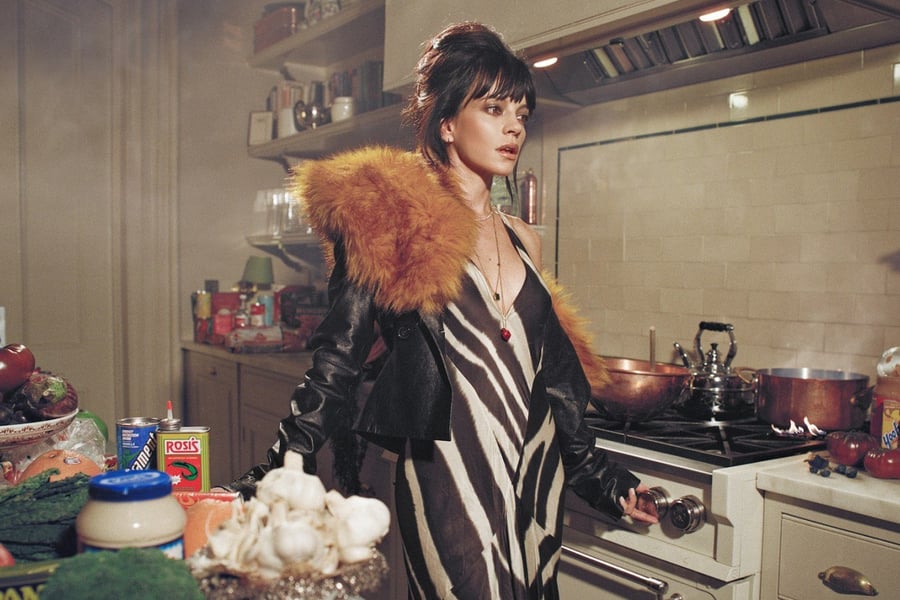Since crash-landing into the indie blogosphere two decades ago, Lily Allen’s greatest strength has been her voice — an airy soprano that can communicate disdain with a sighed lyric or an audible eye-roll. It’s helped her stand out even as she’s shape-shifted through genres — and as she’s dealt with press scrutiny, label woes, artist-on-artist tiffs, and strife in her personal life.
Stress on the homefront is the focal point of West End Girl, Allen’s first record since 2018’s Mercury Prize-nominated No Shame. It’s also her first release since she married and got separated from Stranger Things star David Harbour — a perhaps-germane fact given that the record’s whole narrative arc follows its main character’s journey from wedded bliss to the opposite.
It opens with the title track, a luxe sophistipop cut structured like a horror movie’s opening sequence: Allen revels in the high-end domesticity on her horizon at the outset, then drives headlong into the muck of her partner’s injured ego — he gaslights her about her acting talent, then drops a relationship bombshell that isn’t audible but that’s clearly crushed her. The strings swoon with increased fervor, matching her confusion and anxiety. “Ruminating,” which follows, reveals the partner’s request—he wants to open up their marriage — warps Allen’s voice over a tense two-step beat, turning her mind into a never-closing club where her anxieties about his extramarital activities are the star attraction.
Allen has always had a catholic approach to musical style, and that attitude serves the emotional spectrum of West End Girl well, with the stages of relationship grief and personal humiliation echoed by the music surrounding her. “4chan Stan,” a withering depiction of her partner’s midlife crisis, is a fluffy synthpop cut that recalls the sort of music someone who’s recently AARP age might have grown up on, and its gauziness makes its lyrical swipes (“You love all the power/But you’re not even cute”) land even more sharply. She breaks the Wall of Sound splendor of “Tennis” with “And who’s Madeline?,” a question that becomes more fraught and central to the album’s marriage-dissolution plot as the song goes on; by the end the query has become a “da-da-da”-studded refrain that refuses to get out of Allen’s head. “Beg For Me,” where Allen recounts the grief she feels over falling out of her former partner’s graces, puts her pathos front and center as a slowed-down version of Lumidee’s “Never Leave You (Uh Oooh, Uh Oooh)” clatters behind her.
Allen told The Times of London that she wrote West End Girl in 10 days, the result of her forcing herself out of a depressive state and into the studio late last year. “I thought I didn’t have any good songs left,” she told the British broadsheet. “My writing had been really bad and it took something to happen in my life, for everything to be blown up, for me to be able to go, ‘Oh, here she is.’” Perhaps that’s why West End Girl’s last track, the plushly resigned “Fruityloop,” hinges on one line — “it’s not me, it’s you” — that calls back to Allen’s earlier years quite directly, what with it being the insouciant title of the 2009 album that solidified her pop-star status. Much of West End Girl finds Allen taking a brutal inventory of the scars she amassed while her marriage was falling apart; it couldn’t have a happier ending than one where she’s beginning to remind herself of who she could be.
From Rolling Stone US
Love Music?
Get your daily dose of everything happening in Australian/New Zealand music and globally.



































